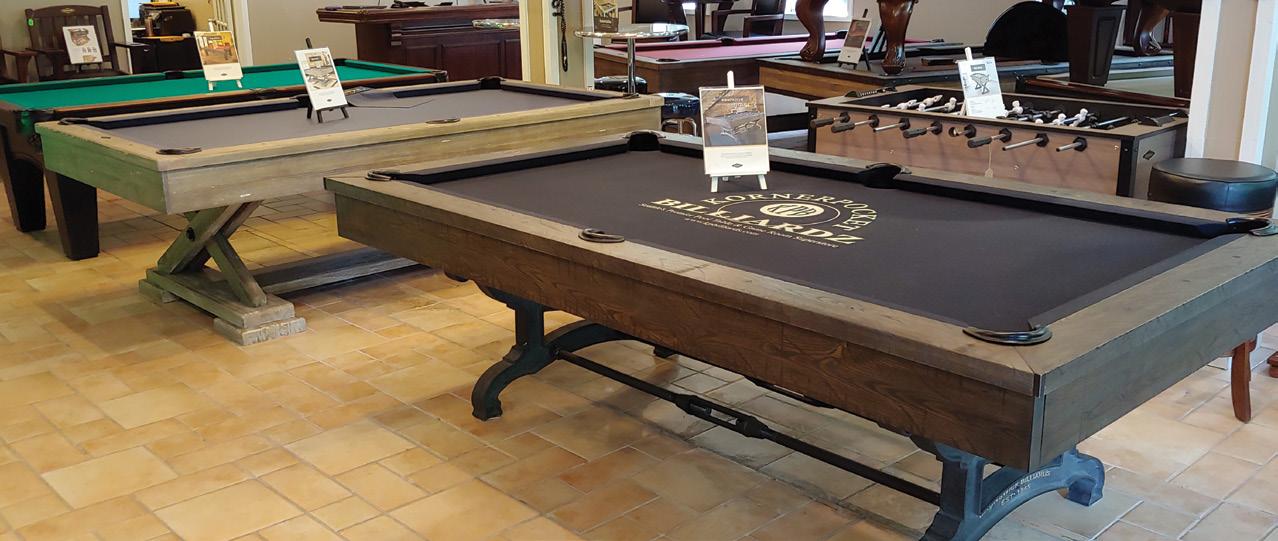
2 minute read
In-Store Social Distancing
Signage about handwashing procedures and hand, cart/basket, checkout sanitizing stations should be available in prominent locations.
All high-risk locations in the store, warehouse or back room should be cleaned and disinfected on a regular customers. Additionally, if an employee and customer
schedule. Use of hand sanitizer should be available for employee
If any individual with confirmed COVID-19 was symptomatic while in the store, immediately close Regular hand washing with soap and water for at least 20 seconds should be done by all employees before and after eating, and after any physical contact with both touch the same cue stick or other piece of billiard equipment, washing hands is paramount.
down and clean and disinfect throughout the area. use after payment/bagging exchange with each patron.
By BCA Insider Staff
Now that retailers are starting to open up their stores and people are shopping for billiard and home leisure supplies, it’s important to remember that the coronavirus crisis is not over and many are still fearful of contracting the virus. That’s why it’s imperative that you implement social distancing guidelines in your store so customers feel safe and everyone is protected.
Here are some guidelines collected from different government agencies on how you can best create physical distancing in your billiard establishment. O Separate people by at least six feet using physical partitions or visual cues, such as floor markings, colored tape or signs to indicate where workers should stand. O Minimize exposure between cashiers and customers. Where physical distancing cannot be maintained, use barriers such as Plexiglas. Where barriers are not feasible, strongly recommend that employees and customers wear face masks. O Use signage to remind customers of physical distancing at every opportunity. O Adjust any in-person meetings with employees – if they are necessary – to ensure physical distancing.
O O O O
O O O O
Place additional limitations on the number of workers in enclosed areas to ensure at least six feet of separation.
Stagger employee breaks, in compliance with wage and hour regulations, to maintain physical distancing protocols.
Dedicate shopping hours for seniors and other vulnerable populations.
Increase curbside pickup and add delivery service options if possible for any home leisure items that can easily be chosen online or by knowledgeable employees.
Provide separate, designated entrances and exits.
Limit the number of in-store customers based on the size of the store.
Encourage and train employees to practice physical distancing during pickup and delivery.
Ask non-employee truck drivers, delivery agents, or vendors who are required to enter the store to have their employees follow the guidance of local, state, and federal governments regarding wearing masks.









